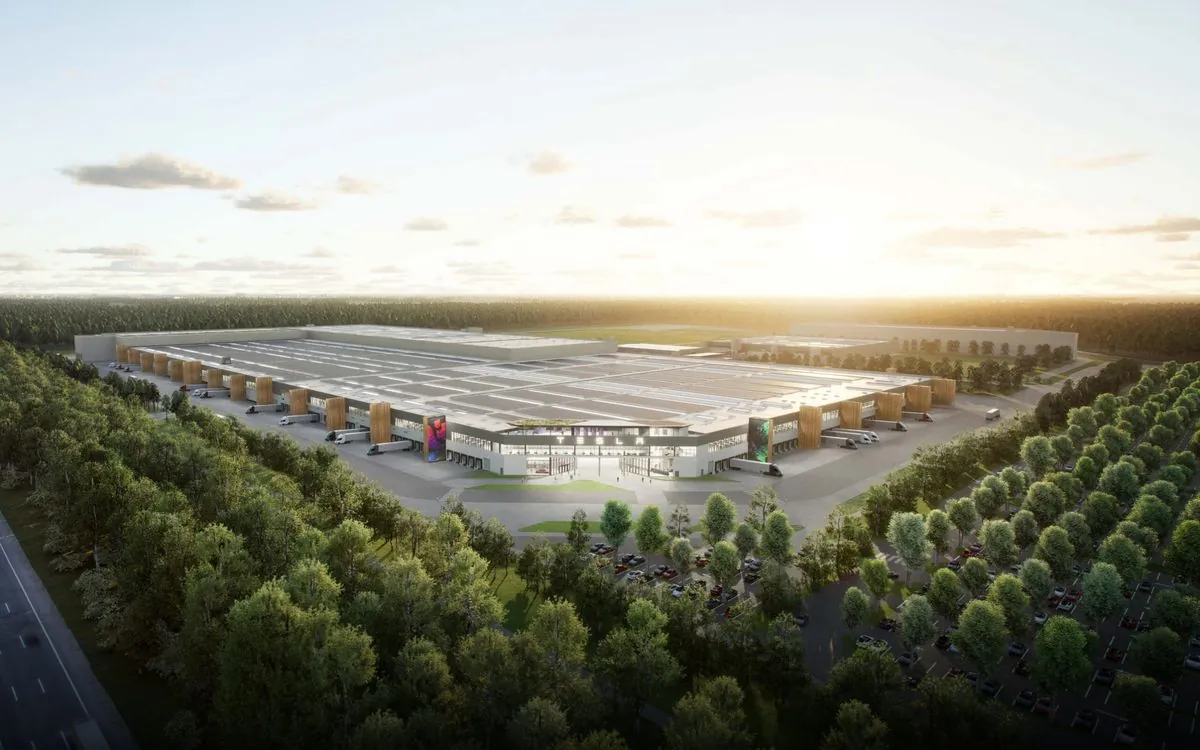Recent satellite analysis has revealed the environmental impact of Tesla's Gigafactory near Berlin. According to data from environmental intelligence firm Kayrros, approximately 329 hectares of local woodland were cleared between March 2020 and May 2023 to expand the plant. This deforestation is estimated to be equivalent to around 500,000 trees.
The Gigafactory Berlin-Brandenburg, Tesla's first European manufacturing facility, began construction in 2020 and officially opened its doors in 2022. Located in Grünheide, about 35 km southeast of Berlin, the factory currently has the capacity to produce 500,000 electric vehicles annually.
The extent of environmental alteration has reignited controversy surrounding the project. Left-wing environmental groups have accused Elon Musk, Tesla's CEO, of destroying local wildlife and potentially polluting drinking water. Protests have been ongoing, with dozens of activists occupying forests outside the factory's perimeter for months.
The project has faced several challenges:
- Relocation of forest wildlife, including ant colonies, reptiles, and bats
- Concerns over water usage in the region
- Compliance with German labor laws and unions
Despite these issues, Tesla has committed to planting three times as many trees as it removed and aims to make the Gigafactory one of the most advanced sustainable factories globally. The facility uses renewable energy and employs innovative, environmentally friendly production methods.
In July 2024, Tesla received approval from the German government to further expand the Grünheide plant, potentially doubling its production capacity to around one million vehicles per year. This decision has intensified the debate over the project's environmental impact versus its economic benefits.
Antoine Halff, chief analyst at Kayrros, provided perspective on the environmental trade-offs:
"The Tesla factory in Germany has led to quite a bit of cutting down of trees. Of course, it has to be put in perspective, against the benefit of replacing internal combustion engine cars with electric vehicles."
Halff estimated that the lost trees would account for approximately 13,000 tonnes of CO2 emissions, equivalent to the output of 2,800 internal combustion engines on average. He noted that this is a fraction of the number of electric cars Tesla produces and sells each quarter.
The Gigafactory Berlin is a crucial part of Tesla's strategy to localize production and reduce transportation costs. When fully operational, it's expected to create around 12,000 jobs, significantly impacting the local economy.
As the debate continues, it's clear that the transition to sustainable transportation involves complex trade-offs between immediate environmental impact and long-term benefits. The challenge lies in balancing these factors while moving towards a greener future.
